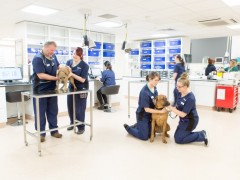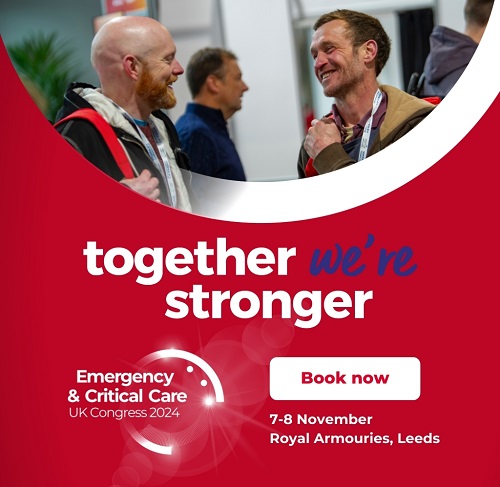“A mentor is someone who sees more talent and ability within you than you see in yourself, and helps bring it out of you.”
Those are the words of world-renowned success expert Bob Proctor, and they sum up the mentoring relationship perfectly.
Mentoring has become an increasingly popular method of developing professional skills and talent in blue-chip companies, with the likes of Boeing, Microsoft and Time Warner all running long-standing programmes.
At Vets Now, in our pursuit to unlock potential, our staff are encouraged to build their own mentee/mentor relationships.
Here we speak to six vets, who have all had their own mentoring experiences, to find out what those meant and what the key to being a good mentor is.
Laura Playforth is Vets Now’s professional standards director and passionate about the benefits of mentoring. Laura’s mentor is business development director Tricia Colville, and she speaks very positively about her experiences.
Laura said:

A good mentor should be someone who is supportive, who you can approach for help, and who sees the bigger picture in terms of helping you achieve your career goals. You should be able to draw on their experience and perhaps discuss issues that you wouldn’t necessarily raise with your line manager. But, for me, it’s important people choose their own mentor rather than having one chosen for them.
I chose Tricia because her career path had been similar to mine in some ways but radically different in others and I felt I could learn a lot from her. She is someone I’ve always admired and respected, particularly in terms of the way she conducts herself and in the contributions she brings to the company and the wider profession. Tricia has helped give me a different perspective on some of the challenges I’ve faced and listening to how her career has developed and the impact of activities outside her main role has been illuminating.
Our relationship isn’t always about seeking and giving advice; there are coaching elements where Tricia asks me the right questions to make sure that I’m thinking about things from different perspectives and coming to my own conclusions. Tricia is very good at doing that without being directive, and always challenging me to improve. It is important when you have been in a role for some time to get an outside perspective on some of the challenges and some external praise and support. Our relationship has been invaluable in my development and brings something different to my relationship with my line manager and my team.
Tariq Abou-Zahr is progressing through his residency at Great Western Exotics. He now works under the guidance of Tom Dutton but was previously mentored by world-renowned exotics specialist Neil Forbes.
Tariq said:

Mentoring is a big deal at Vets Now. When I started here, I was very much a blank sheet of paper. I had some experience in practice, but I only knew the basics. Coming into an environment where you are nurtured continuously and mentored did me a huge amount of good.
There are things that I can see in myself now, even though my former mentor has left, that I realise that I’ve picked up from him and use in everyday practice. Simple things like having everything set up and ready before doing a procedure, going through things logically, making sure things are in place and working as efficiently as I possibly can – these are all things that have been encouraged by mentoring in the residency programme.
The specialist knowledge that I gained learning from someone with more than 30 years’ experience has also been invaluable and something that you wouldn’t get from a textbook or online. It’s a unique way to learn, and I think I’m very privileged in that I’ve been able to learn that way.
Anneka Phillips came through Vets Now’s Cutting Edge programme and is now senior vet in our Bristol clinic. Anneka still benefits from the guidance of mentor Aoife Reid, who is head of Edge programmes.
Anneka said:
There is a culture of mentoring within Vets Now. The mentor/mentee relationship is such an important one, both in terms of skills development and career progression but also just for support.
For me, a mentor is someone who you can go to directly and draw from their experience. You can ask their opinion on your decision making, and they’ll give you honest advice to help you out.
It doesn’t matter how good a vet you are, your confidence will take knocks at some points, but to have someone on the other end of the phone who is removed from your clinic but understands what you’re experiencing is really important.
Aoife is always there for me whenever I need her, even to the point where if I text her after a difficult shift she’ll call me on the way home. It’s great being able to call on someone in these situations. At the very least she’ll always stop me beating myself up when things don’t go to plan.
Laura Playforth Head of Veterinary Standards"Our mentoring relationship has been invaluable in my development and brings something different to my relationship with my line manager and my team."
Kate Russell is another Cutting Edge graduate who has worked in several out-of-hours clinics. Kate now leads the emergency service in Vets Now’s emergency and specialty hospital in Swindon and says her ‘superstar’ mentor is district vet Richard White.
Kate said:
“I would call on Richard whenever I was struggling, and he was always a great help. He is particularly good with new vets, and he took care of me when I needed it.”
“Some vets are very confident but a lot, particularly when they’re still new in the job, need support. To have a mentor you can talk to, who is easily approachable but non-judgemental, and able to simply say ‘you’re doing great’ rather than telling you what to do and what not to do, is worth its weight in gold. It gives you that added boost of confidence.”
“At Vets Now, there is a real culture of this and a great support network in place.”
Tom Dutton is head of Great Western Exotics and mentors the vets who work under him. Tom has had his own positive experience of being mentored, having completed a residency in 2015 and a diploma in 2017 under the expert tutelage of his predecessor Neil Forbes.
Tom said:
Neil provided me with a lot of mentoring and coaching in the early part of my career and was always very supportive when I was on-call. Taking sole-charge can be an anxious time for vets with limited experience, but he was always there for me, either at the end of the phone or able to come in to help with more complex cases. That kind of support is really important, and it’s something I do with the residents here now.
I think creating a mentoring culture is vital, particularly in departments like ours, where there are resident vets. We regularly sit down with each other to discuss cases and go through radiographs and imaging. This is just a standard part of our working week.


